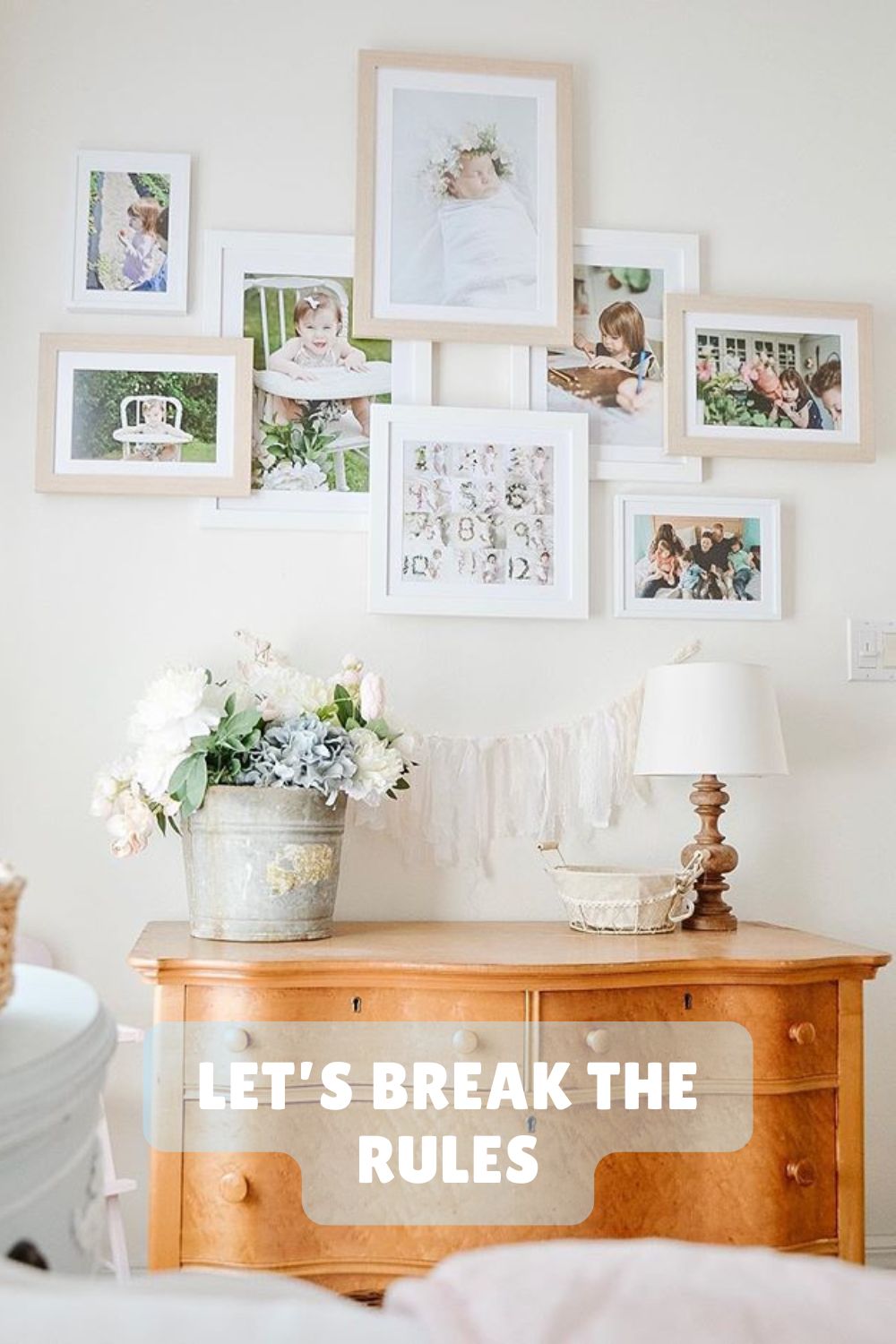Framing rules are meant to be broken! We said it. Interior design is often seen as a precise art with strict guidelines, but some of the best design moments come from breaking the rules. Whether you’re framing your own artwork, photography, or a cherished family recipe, these so-called “rules” were made to be challenged. Here are five traditional framing standards you might want to rethink.
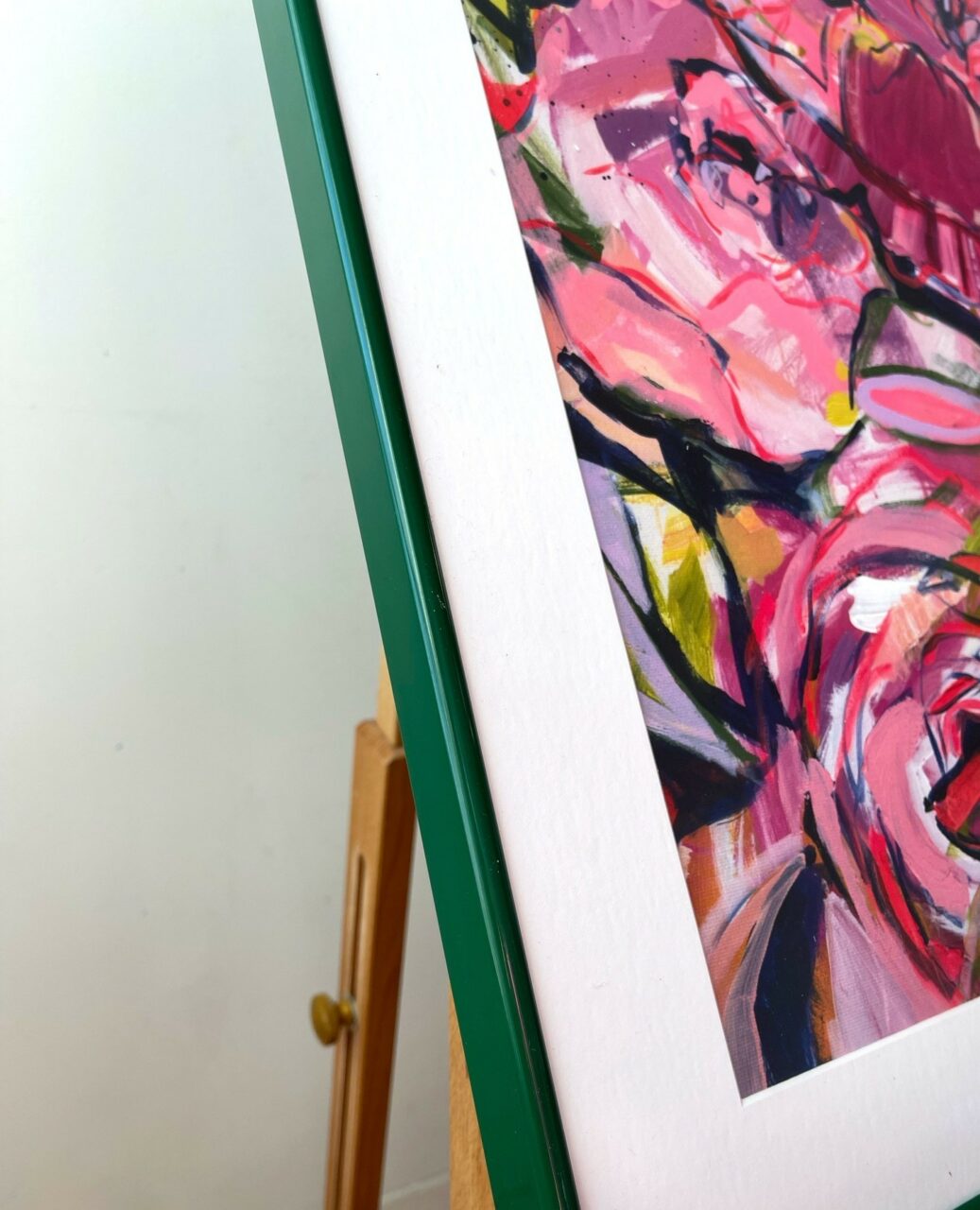
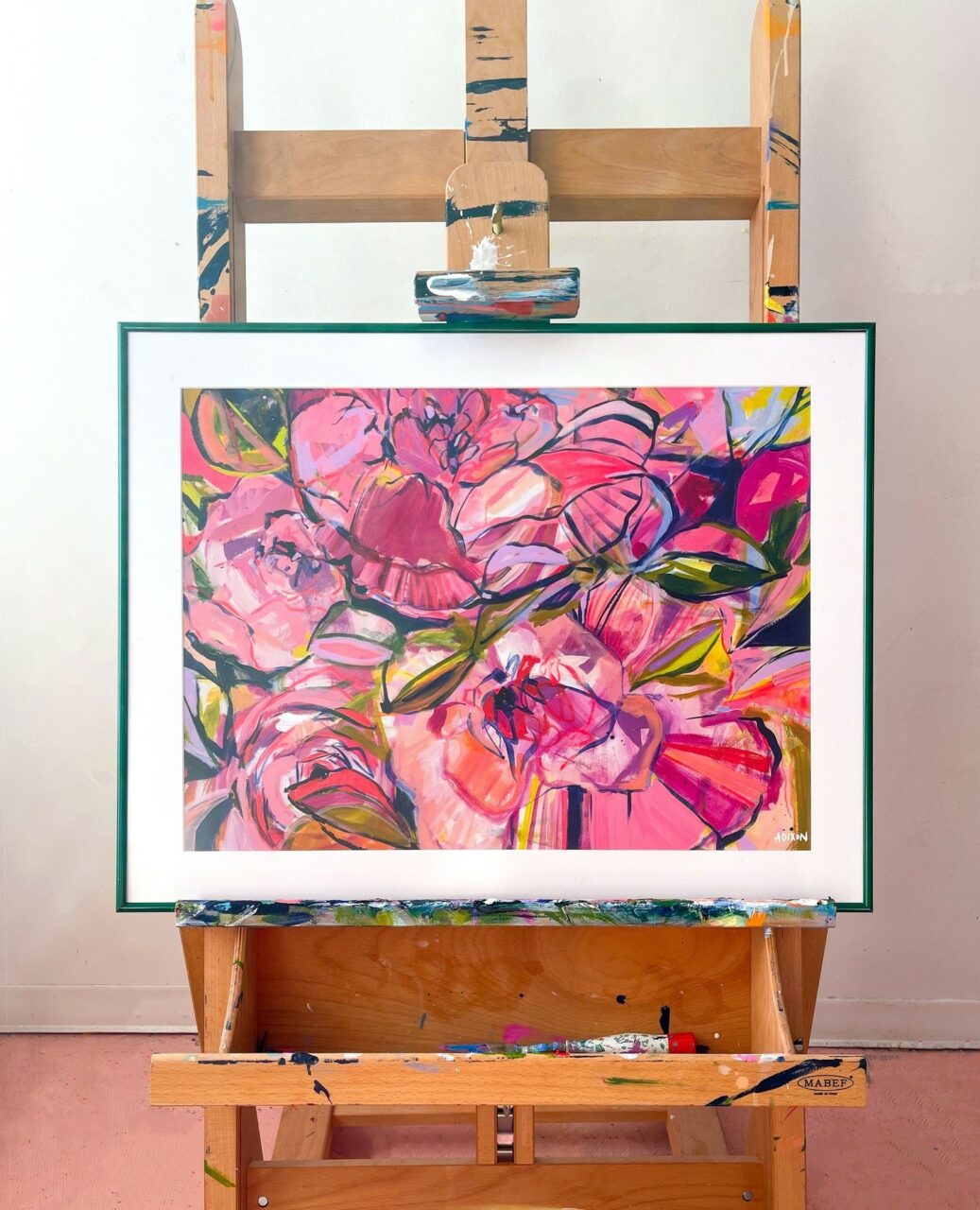
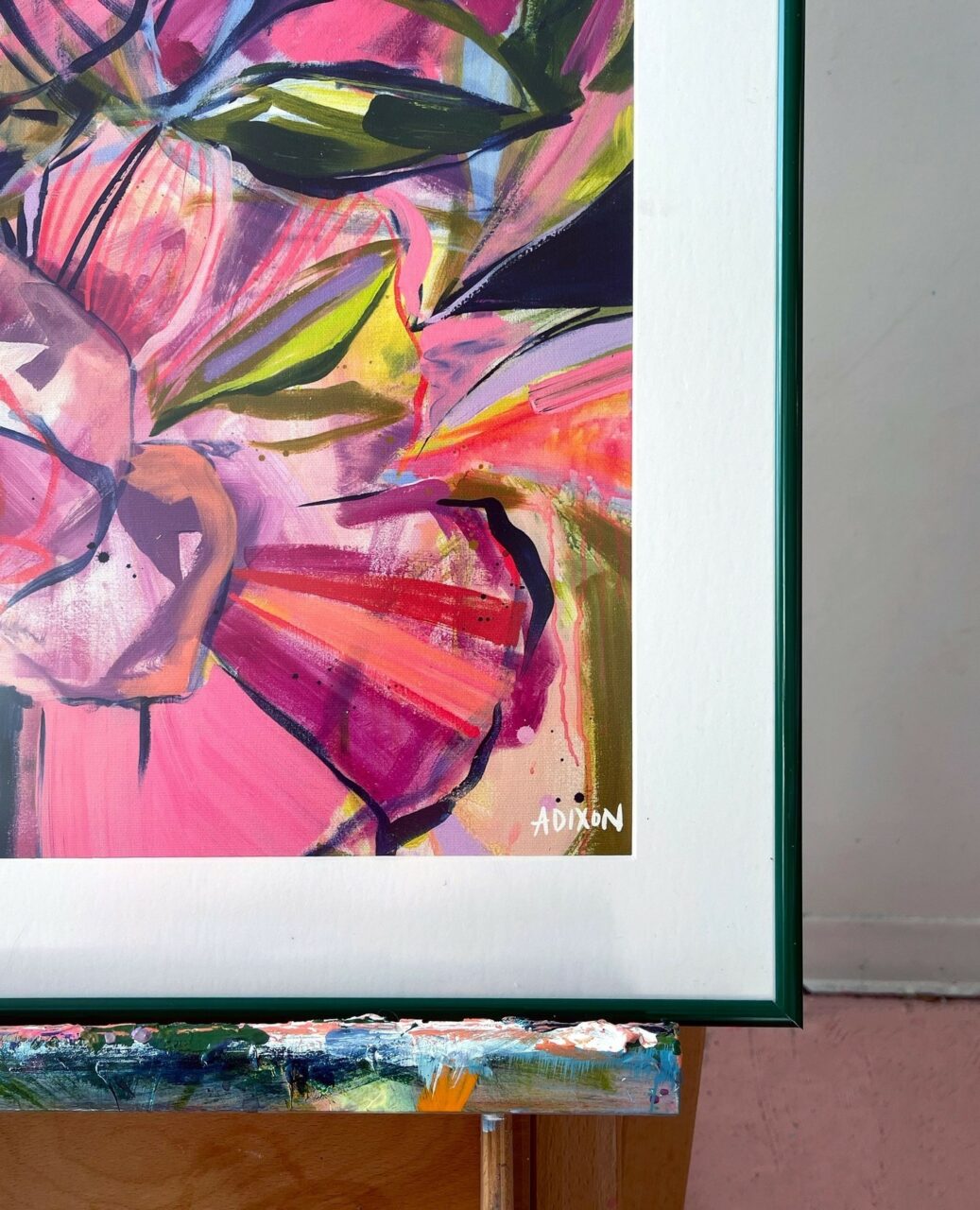
1. Matching the Frame to the Art Style
It’s common advice: classic paintings should have ornate, gilded frames, and black-and-white photography should stick to minimalist black picture frames. But sometimes, we need to loosen up a little by mixing styles to create the best results.
Maybe this is a little out of your comfort zone. But, try framing a watercolor in a bold, modern metal picture frame, or choose an abstract print with a vintage-inspired frame. This unexpected contrast adds personality and depth to a piece, making it even more of a conversation starter. The key here is to find balance—let the frame and the art complement each other rather than compete.
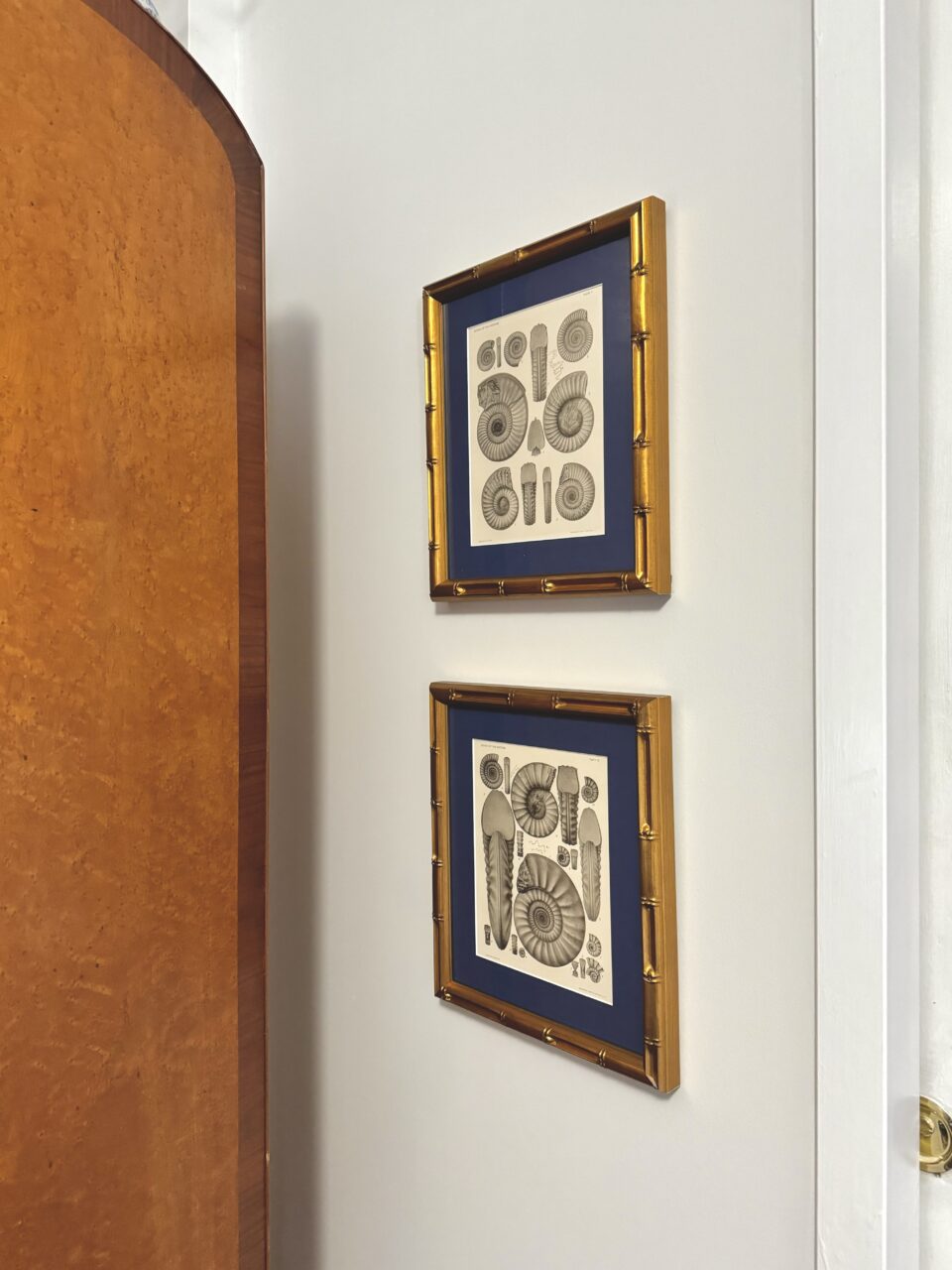
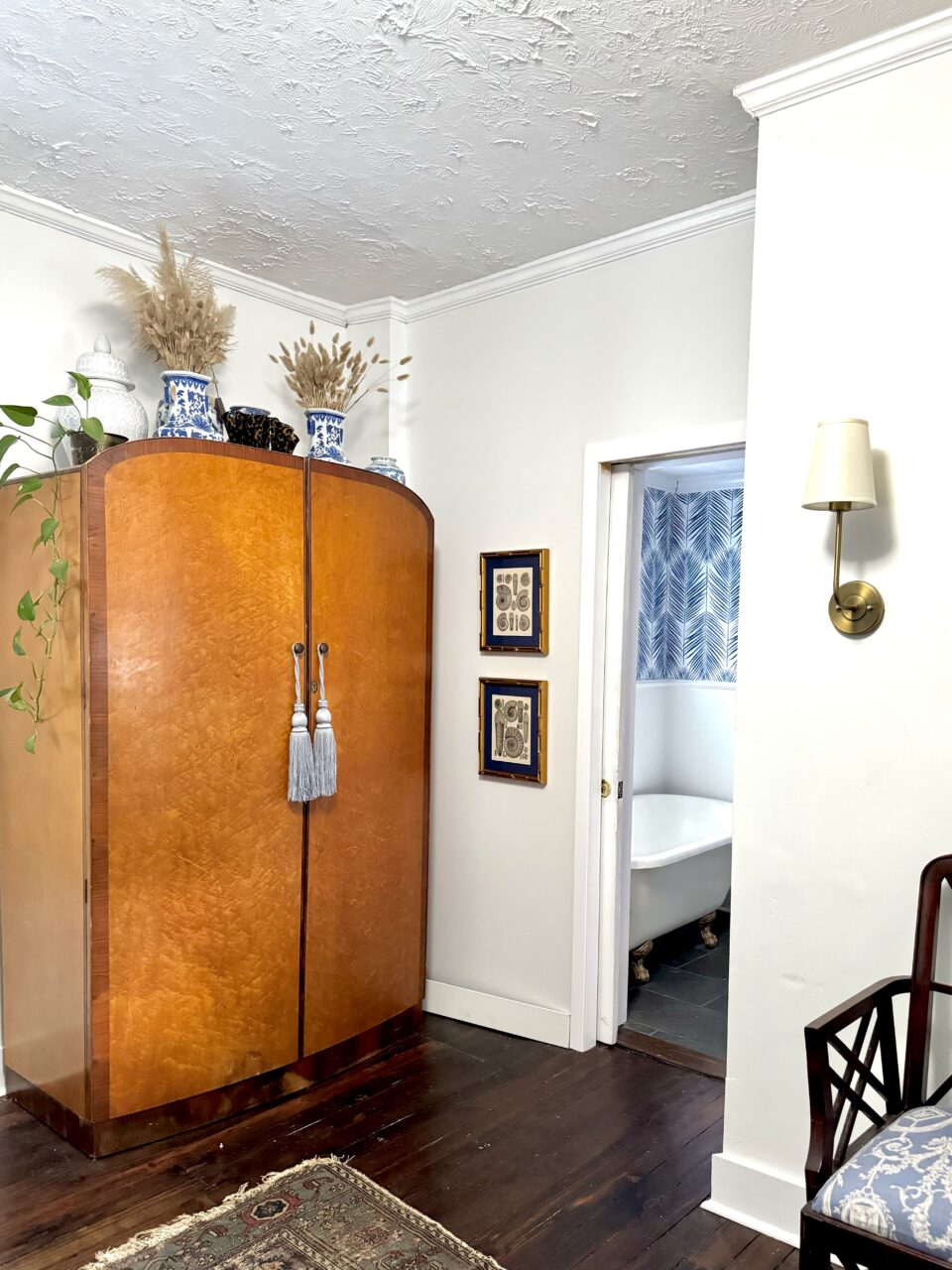

2. Always Use a White Mat…NOT!
SNOOOOZE. White mats are a classic choice and most certainly our top seller, but colored mats add an entirely new dimension to your framed art. A well-chosen mat color can enhance the artwork, draw out specific tones, and create a more dramatic or cohesive display.
Try a deep navy or charcoal (instead of black!) mat for a sophisticated, gallery-like feel, or a warm-toned mat, like a rust color or olive green, to add richness and depth. If you’re feeling extra adventurous, experiment with vibrant hues that complement or contrast the artwork. Even subtle shades—like soft green or muted blue—can make a piece feel more intentional and polished.
Don’t be afraid to step away from the default white mat. Color can be a powerful tool in making your artwork stand out while still looking refined and professional! Perhaps take a little dive into our color theory lessons to boost your confidence!
Shop Colorful Picture Frames
Shop Neon Picture Frames
3. Sticking to Neutral Frame Colors
Black, white, and natural wood frames are classic choices—but who says you have to play it safe? Not us, that’s for sure. A frame with a bold pop of color can completely transform the look of a piece.
Consider a bright red, deep green, or hot pink picture frame to enhance the tones in the artwork or tie in with the surrounding decor. A colorful frame can make a piece feel more playful, dramatic, or unexpected. If you’re hesitant, try using color in a subtle way—like a dark blue instead of black or a warm rose-gold metallic picture frame for earthy artwork.
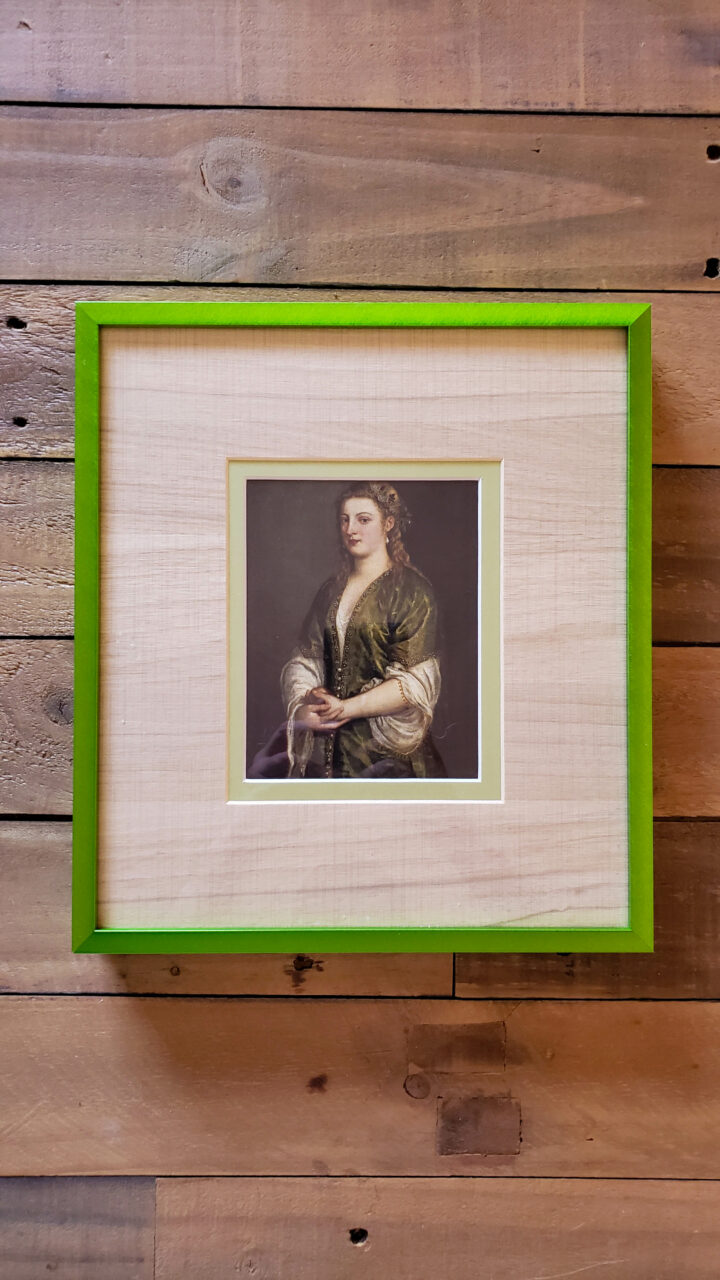
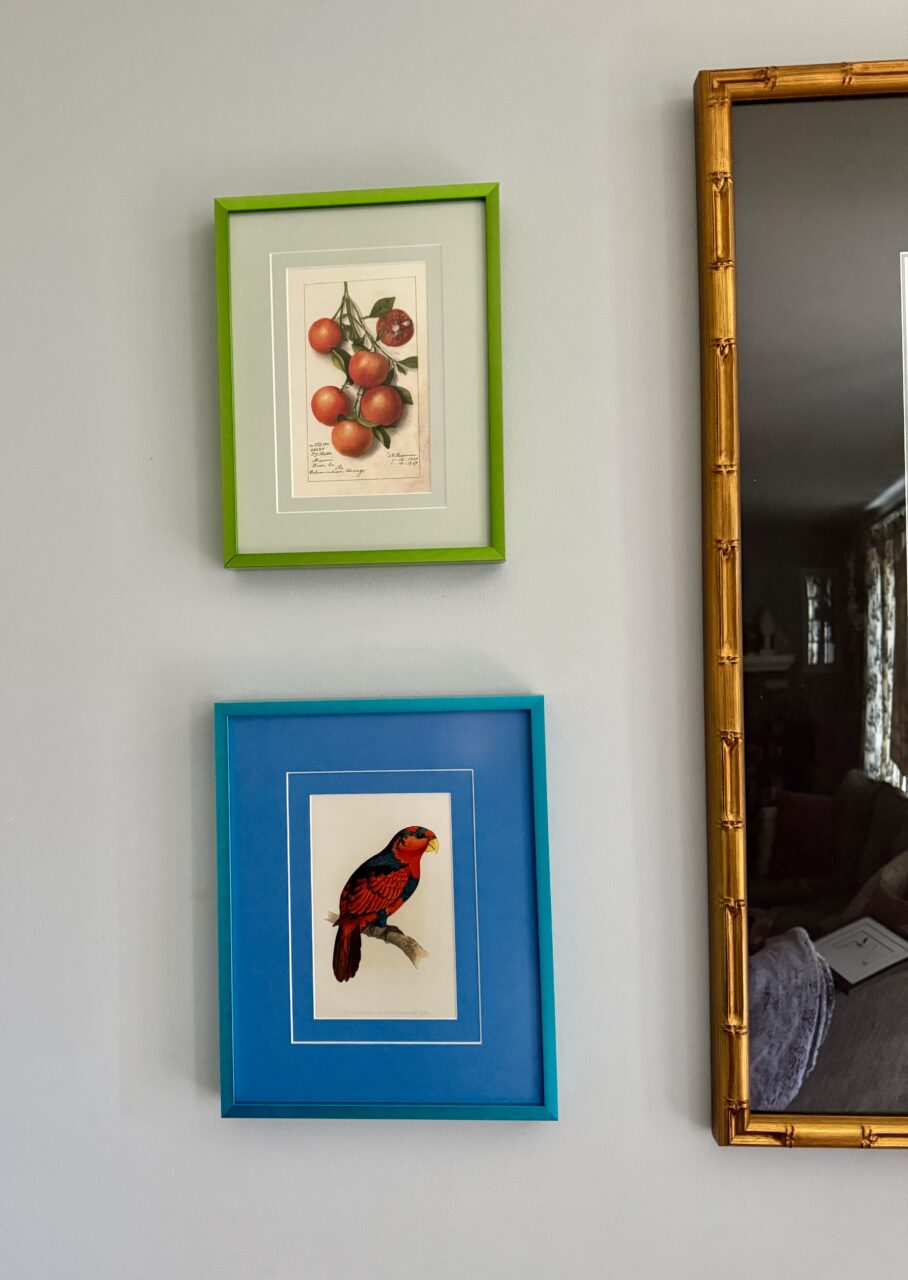
Go pastel with a light green matting, or full monochrome with a blue-on-blue moment.
4. Keep Frames Uniform on a Gallery Wall or Don’t.
Gallery walls are a great way to show a bunch of framed pieces, but they don’t have to be perfectly symmetrical or matchy-matchy. In fact, some of the most visually interesting gallery walls are an eclectic mix of frame styles, colors, and sizes.
Try combining wood frames with metal ones, or mix ornate frames with sleek, contemporary ones. Another approach? Layer framed art by overlapping pieces on a shelf or leaning them against the wall instead of hanging them in a strict grid. This creates a more organic, collected-over-time feel that is sure to be a conversation starter at your next gathering!
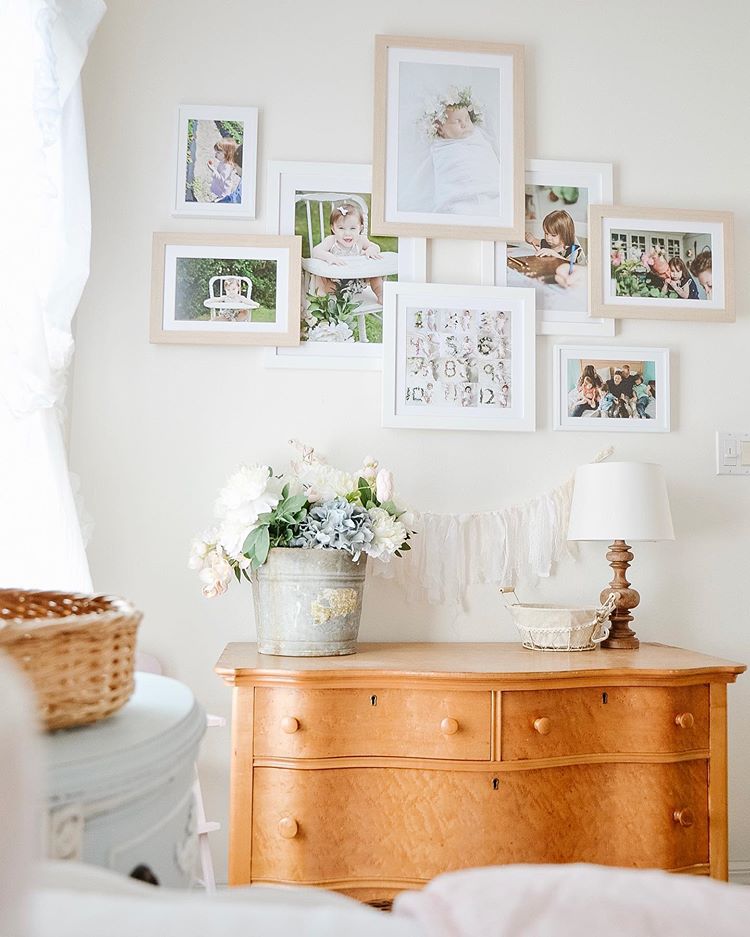
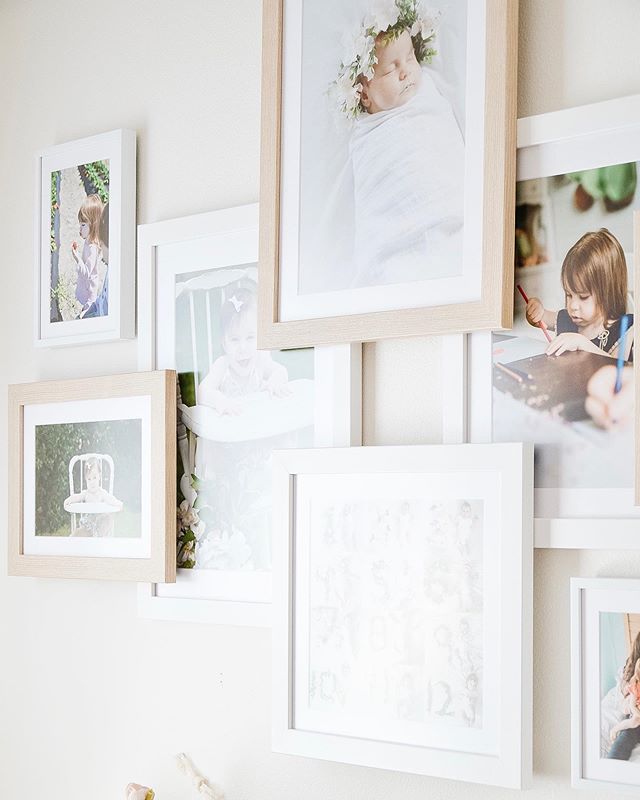
5. Always Centering Art on the Wall
Center shmenter. Hanging art perfectly centered at eye level is a safe bet, but it’s not the only way. Experimenting with placement can bring more personality to your space.
Try hanging artwork off-center above a piece of furniture or clustering multiple framed pieces together in an asymmetrical arrangement. Another great trick? Lean framed art against the wall instead of hanging it. No tools or ladder needed! This is perfect for bookshelves, mantels, and side tables, giving your space a relaxed, effortless look.
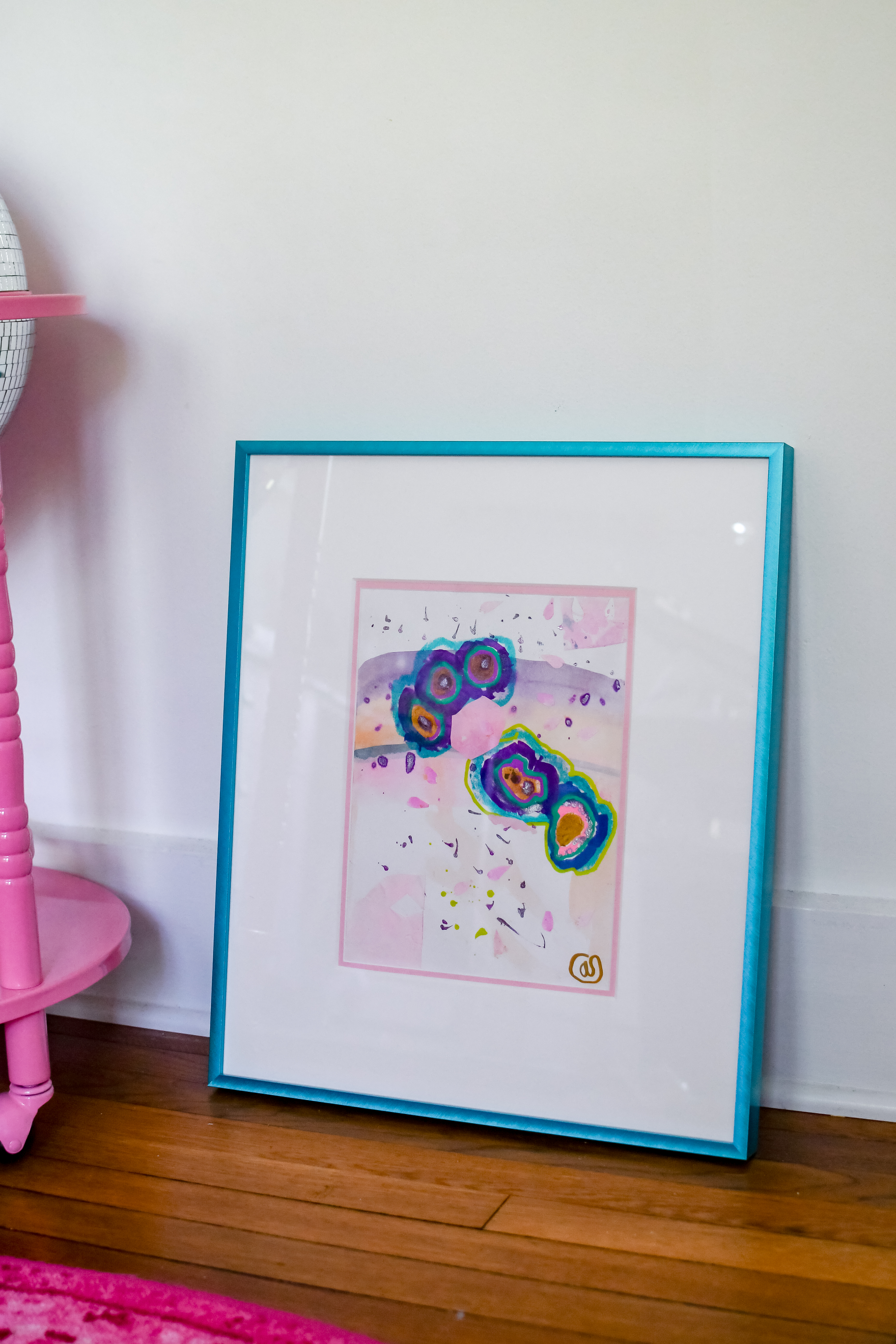
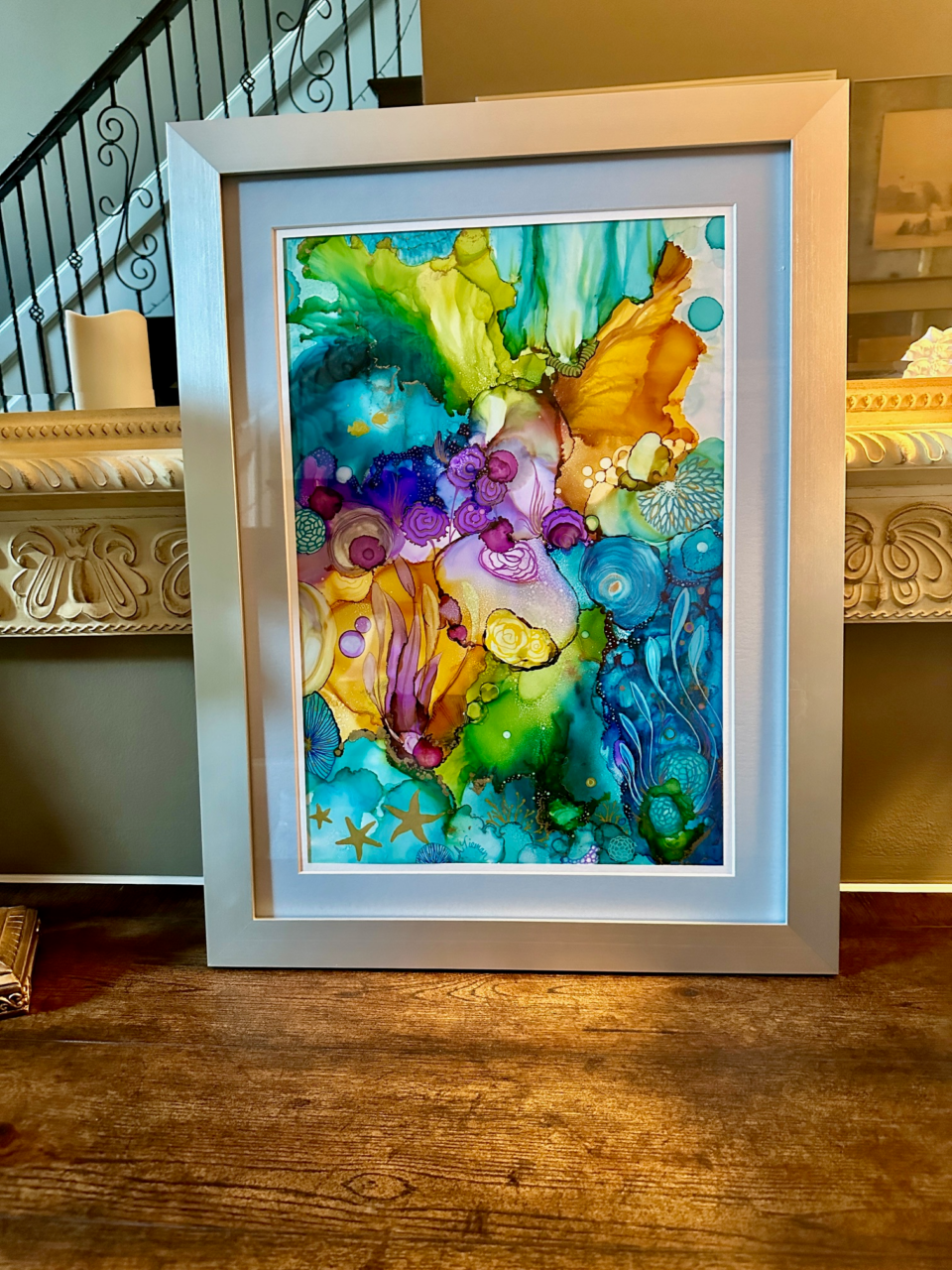
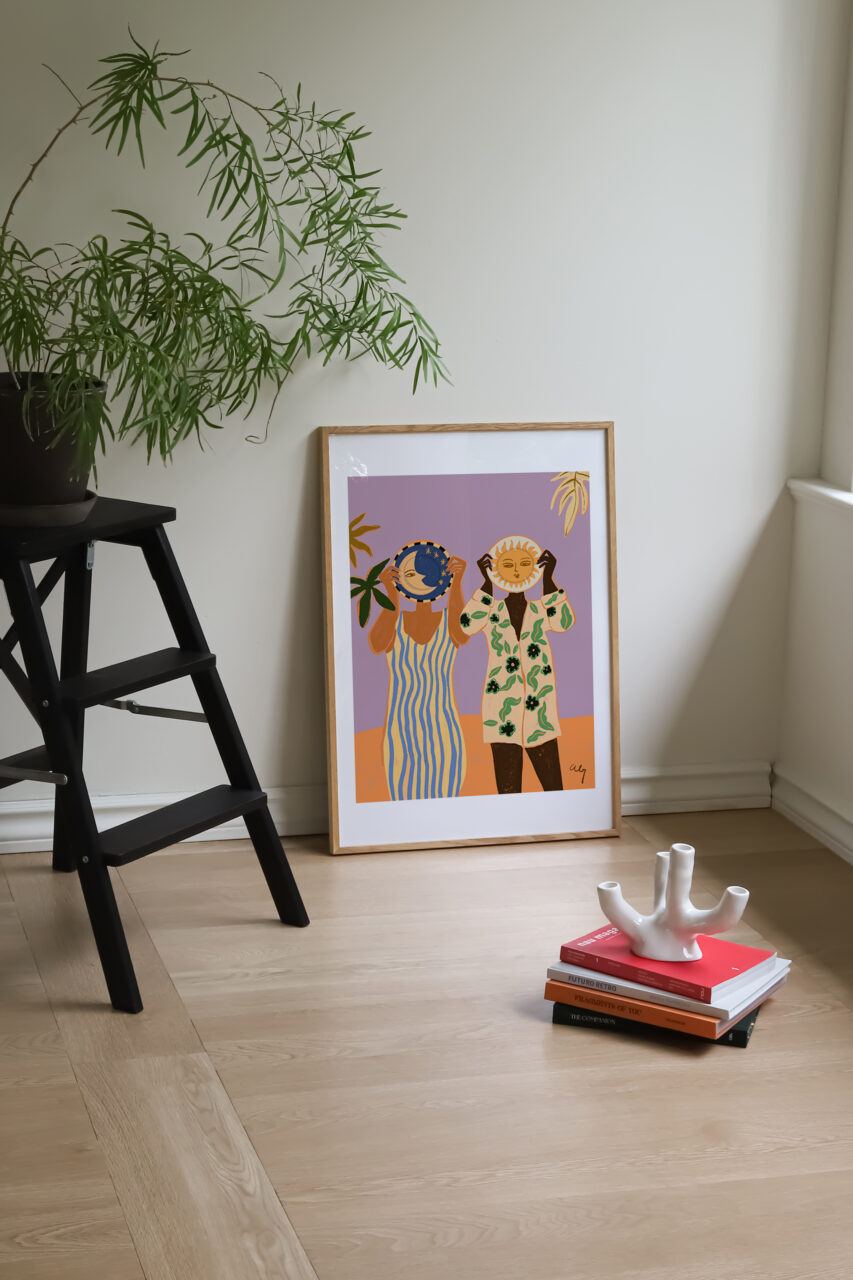
Break the Framing Rules, Frame It Yours
At the end of the day, framing is about showcasing what you love in a way that feels right for your space. If a rule doesn’t work for your vision, break it! Experiment with different frame styles, colors, and layouts to create a display that reflects your personality.
What framing rules have you broken? Let us know in the comments!
